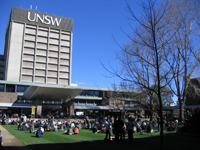|
|||||||||||
| Archaeology | |||||||||||

Archaeology is a gateway to the past. Archaeology uses the results of empirical research to study the material culture from the evolution of human beings through contemporary post-industrial industrial societies. The minor employs and integrates allied disciplines through the theories, methods and practices of archaeology, affirming that archaeology constitutes a nexus of disciplines employed to understand the human past in all its scope and diversity. The minor is relentlessly multidisciplinary. It incorporates courses from biological and sociocultural anthropology, history, history and philosophy of science and the natural sciences. Although it respects the methodological approaches of individual disciplines and the advances they have yielded, it will require students to employ multiple disciplines in their exploration of the changing human condition. In the process it prepares and encourages students to actively participate in the practice of archaeology.
Students taking a minor in Archaeology will follow a progressive and multidisciplinary course of study, taking classes in archaeological theories, methods and practices, plus courses in at least one of the following three disciplines:
Archaeology, as the source of material evidence about the past and an approach to its interpretation, unifies the minor, integrating diverse approaches to address major themes in the study of the human past – physical and cultural evolution, human interaction across cultures, and human interaction with the environment.
Archaeology can be studied as
|
|||||||||||



